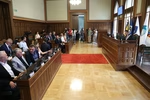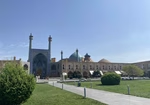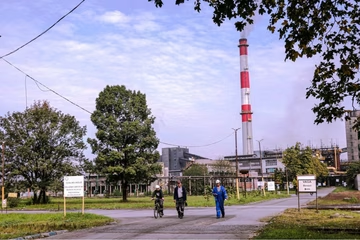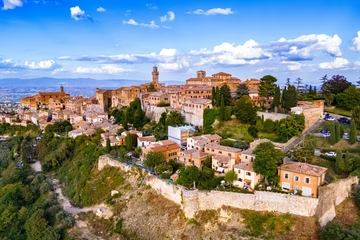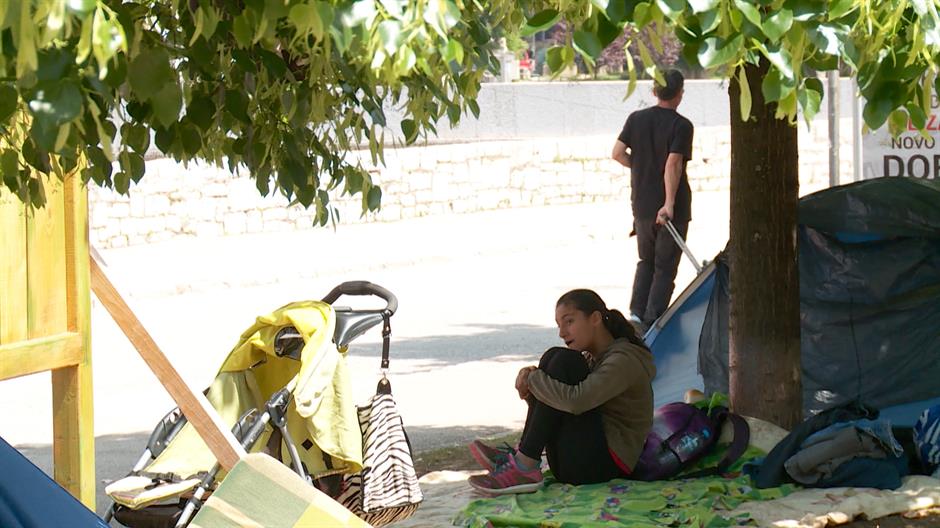
Bosnia and Herzegovina has no way to stop the migrants. Around 50,000 of them are between the Greek islands and Bosnia, the State Security Minister Dragan Mektic said. The international representatives also warn that Bosnia is facing a small humanitarian crisis. Accommodation is still one of the burning issues.
"The situation we are witnessing now can be defined as a small humanitarian crisis," said the sub-regional Coordinator of the International Organization for Migration for the Western Balkans, Peter Van der Auwereart.
"This isn't just a problem for the migrants, but for the Bosnian citizens as well. There are health risks. If the migrants don't have any accommodation, there is little chance that they will be visited by a doctor. They could be sick, but they could also infect the local population," Van der Auwereart added. "There are also hygiene risks. If many people sleep outside during high temperatures, you will have a problem with the hygiene around the park the migrants are sleeping in. You will also have an increased feeling of unease among the Bosnian citizens living around such parks. There are also some economic consequences. There are ever more tourists in Sarajevo and this is not the image you want to send into the world."
The 2015 Plan of Urgent Measures stipulates, among other things, that Bosnia's Defence Ministry should provide a list of military property locations which can be used as housing for the migrants. Some of those locations have running water, electricity and sewage infrastructure and need minimal investments. Yet, the Serb dominated Republika Srpska entity finds it unacceptable that Bosnian state institutions should suggest the former barracks "Zaluzani" in Banjaluka and "Neretva" in Kalinovik, which are the property of the Government of RS and Kalinovik Municipality, to be used for these purposes.
On the other hand, the Sarajevo Canton and City authorities will request that the Bosnian Presidency provides barracks for the housing of migrants, as soon as possible.
The immense 'red-tape' also hinders the solution to the medical treatment of migrants.
"There is no state-level health care act, and yet we have to provide health care to these people. The local communities are the owners of all the facilities and territories where the potential facilities for the housing of these persons are located. We offered the most suitable solution recently, to set some 2,000 repurposed shipping containers at the location of Doboj-Klokotnica, in northern Bosnia, near the town of Doboj, in which we could house these persons," said the Bosnian Security Ministry.
The number of migrants in Bosnia continues to rise. With prose borders and lack of capacities of the Border Police, Migrants are easily entering the country. The international Migration Organisation predicts that Croatia will strengthen the control of its borders and that the migrants will remain 'stranded' in Bosnia.
Kakvo je tvoje mišljenje o ovome?
Učestvuj u diskusiji ili pročitaj komentare





 Srbija
Srbija
 Hrvatska
Hrvatska
 Slovenija
Slovenija





























